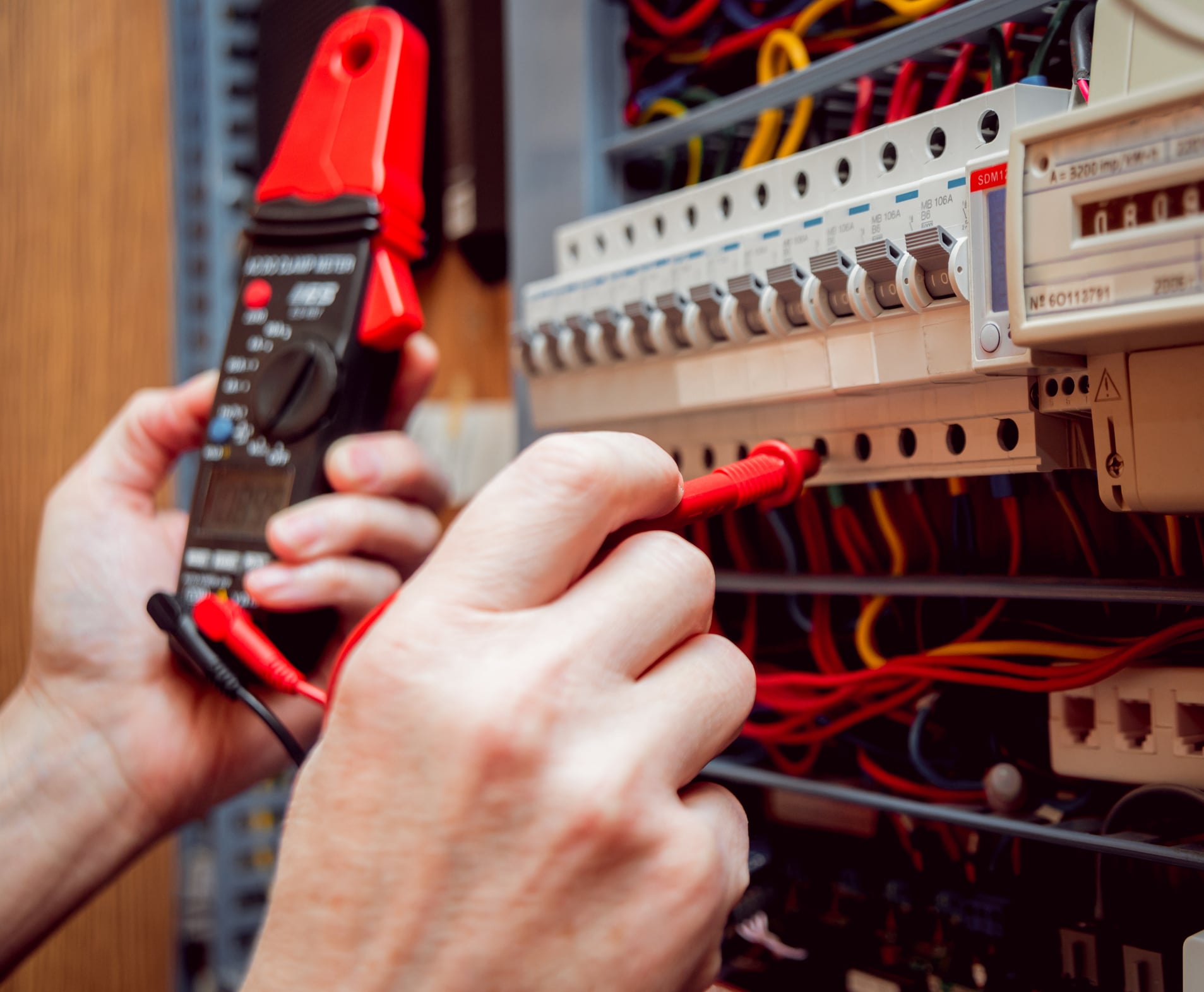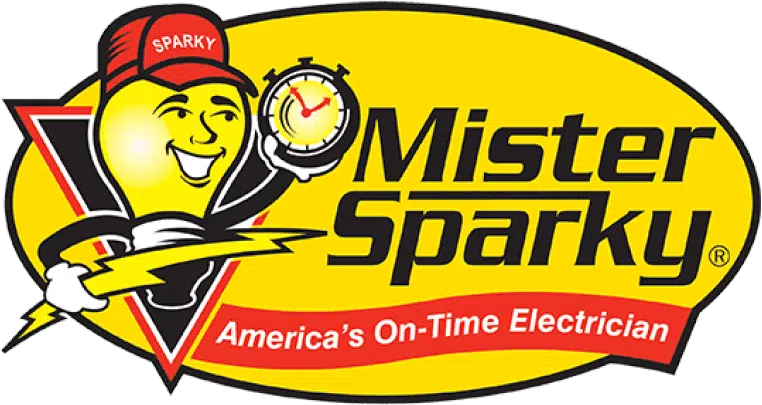Ensuring your home’s wiring is up to code is crucial for safety and avoiding costly repairs. “Up to code” means your electrical system meets current safety standards, which are regularly updated. Signs your wiring may not be safe include frequent breaker trips, flickering lights, and burning smells. Conducting a visual inspection can help, but a professional electrician should handle thorough checks. Faulty wiring increases the risk of fires, electric shocks, and appliance damage. Regular inspections, especially for older homes, ensure your system is safe, compliant, and efficient.
Do you ever think about the wiring hidden behind your walls? Most of us don’t give it a second thought until something goes wrong, like a flickering light or a tripped breaker.
But did you know that outdated or faulty wiring can be a serious hazard in your home? If you’re living in Lancaster, it’s important to make sure your wiring is up to code.
Not only does this ensure your safety, but it can also save you from expensive repairs down the line. So, how do you know if your wiring is up to code?
What Does “Up to Code” Mean for Home Wiring?
When we talk about being “up to code,” we’re referring to whether your home’s electrical system meets the current safety standards.
These codes are put in place by local authorities to ensure that homes are safe from electrical hazards. They cover everything from how circuits are installed to the types of materials used.
In Lancaster, like many other places, building codes are regularly updated. What was considered safe 20 or 30 years ago might not be safe today.
So, even if your home passed inspection when you bought it, it’s worth checking if your system still meets today’s standards.
Ensuring your home’s electrical components are up to code not only helps prevent fires and electric shocks but also ensures your home is safe for you and your family.
Signs Your Home’s Wiring May Not Be Safe
Some clear signs could indicate trouble, and it’s important to pay attention to them before they lead to bigger problems.
- Frequent circuit breaker trips: If your circuit breakers are constantly tripping, it could mean your wiring is overloaded or faulty. This is a common issue in older homes where the wiring wasn’t designed to handle today’s electrical demands.
- Flickering or dimming lights: This could be a sign that your wiring is struggling to keep up with your electrical needs, which might indicate outdated wiring or a poor connection.
- Burning smells or scorch marks near outlets: If you notice a burning smell or see scorch marks around your outlets, it’s a major red flag. This usually means that your wiring is overheating and could potentially lead to a fire if not addressed immediately.
These signs shouldn’t be ignored. If you notice any of these issues in your Lancaster home, it’s time to take action to ensure your wiring is safe.
How to Check if Your Wiring is Up to Code
While a professional inspection is the best way to be sure, you can take a few simple steps to assess the situation yourself.
Simple Steps for a Visual Inspection
Pay attention to how these components feel as well—if they’re warm to the touch, it could indicate that your system is struggling to manage the electrical load.
Also, don’t forget to inspect your circuit breaker panel. Outdated labels, corrosion, or signs of wear might suggest that your home’s electrical system isn’t up to modern standards and could pose a risk.
When to Call a professional Electrician
If anything about your inspection raises concerns, or if you’re simply unsure about what you’re seeing, it’s wise to bring in a professional electrician.
These professionals can conduct a thorough assessment, checking areas you might not have access to or might not know how to evaluate properly. They can ensure that your system is fully compliant with the latest safety codes, giving you peace of mind.
Electricians are also trained to spot subtle issues that could turn into major problems if left unchecked. By involving a professional, you can avoid potential hazards and ensure your home’s electrical system is as safe and efficient as possible.

The Dangers of Faulty or Outdated Electrical Systems
Having an outdated or faulty electrical system isn’t just an inconvenience—it’s a serious safety hazard. Many homeowners in Lancaster may not realize the risks associated with old or poorly maintained setups, but these issues can lead to devastating consequences if left unaddressed.
Fire Hazards
One of the most significant dangers of an outdated or faulty electrical system is the increased risk of fire. Over time, wires can deteriorate, becoming frayed or brittle. When this happens, the insulation that protects them may break down, leading to short circuits and, ultimately, fires.
Homes with aluminum wiring, common in older houses, are particularly prone to overheating, which can easily ignite a fire if not properly managed. Ensuring your home’s electrical system is up to code can drastically reduce the risk of such incidents.
Risk of Electric Shocks
Faulty electrical setups can also increase the risk of electric shocks. Exposed wires, poor connections, and lack of proper grounding all contribute to this danger.
Electric shocks can cause serious injuries, and in severe cases, they can be life-threatening. Even a minor shock is a sign that something is wrong with your electrical system and should be addressed immediately to prevent further hazards.
Potential Damage to Appliances
In addition to the direct safety risks, outdated electrical systems can also damage your home’s appliances. Old or faulty components can create power surges, which may fry your electronics or shorten their lifespan.
This can lead to costly repairs or replacements, not to mention the inconvenience of losing your essential devices. Upgrading your electrical setup can help protect your appliances, ensuring they run efficiently and safely.
Common Electrical Issues in Older Lancaster Homes
If you live in an older home in Lancaster, there’s a good chance your electrical system might not be up to modern standards. Older homes often come with their own set of issues, and understanding these can help you take the necessary steps to keep your home safe.
- Outdated aluminum wiring: In the 1960s and 1970s, aluminum was commonly used in homes as a cheaper alternative to copper. However, aluminum is more prone to overheating and can be a fire hazard if not properly maintained. If your home uses this material, it may be worth considering an upgrade to safer copper options.
- Two-prong outlets without grounding: Many older homes still have two-prong outlets, which lack grounding. Grounding provides an extra layer of safety, helping to prevent electrical shocks. Without it, your outlets might not be able to handle modern electronics safely, making them a potential hazard.
- Knob-and-tube systems: This is one of the oldest types of electrical setups found in homes, dating back to the early 20th century. While it was considered safe at the time, knob-and-tube systems can’t handle the electrical load of modern appliances and lack grounding. It’s also more prone to deterioration and may be unsafe if it hasn’t been properly maintained.
If your Lancaster home has any of these issues, it’s important to consider an upgrade. Not only will this improve your home’s safety, but it can also increase its value and make it more energy-efficient.
The Benefits of Upgrading Your Home’s Wiring
Upgrading your home’s electrical system might seem like a big project, but the benefits far outweigh the effort. Especially in older homes, modernizing your electrical setup can bring about significant improvements in safety, efficiency, and overall home value.
Improved Safety and Peace of Mind
The most important benefit of upgrading your home’s electrical infrastructure is the increased safety it provides. Modern systems are designed to handle today’s energy demands, reducing the risk of overloads, short circuits, and fires.
With up-to-date electrical components, you can rest easy knowing that your home is protected from potential hazards. It’s a simple investment in peace of mind, ensuring that your family is living in a safer environment.
Enhanced Energy Efficiency
Old electrical setups are often inefficient, leading to higher energy bills. By upgrading to modern components, you can significantly improve your home’s energy efficiency.
This not only helps reduce your monthly utility costs but also lessens your home’s environmental impact. Newer systems are designed to manage energy more effectively, distributing power where it’s needed most and minimizing waste.
Increased Home Value
In addition to safety and efficiency, modernizing your home’s electrical system can also increase its market value. Potential buyers are more likely to invest in a home with a modern, safe electrical system, knowing they won’t have to deal with costly upgrades themselves.
This can make your home more attractive on the market and may even lead to a higher selling price. In many cases, the cost of upgrading can be offset by the increase in your home’s value.

How Often Should Wiring Be Inspected?
Maintaining a safe and efficient electrical system in your home isn’t just about the initial installation; regular inspections are key to ensuring everything remains in good condition.
Recommended Inspection Frequency
For most homes, it’s advisable to have your electrical system inspected by a professional every 3 to 5 years. This regular check-up helps to catch any potential issues before they become serious problems.
During these inspections, an electrician will look for signs of wear, outdated components, and other factors that could compromise the safety or efficiency of your system.
Regular inspections are particularly important if you live in an older home, where the electrical infrastructure might not meet modern standards.
Special Considerations for Older Homes
If you own an older home in Lancaster, more frequent inspections may be necessary. Older systems are more prone to wear and may have components that are no longer considered safe by today’s standards.
Homes with systems that haven’t been updated in decades could be at a higher risk for issues like overheating, short circuits, or fire hazards. In these cases, having an inspection every 2 to 3 years might be a wise choice to ensure your home remains safe.
DIY vs. Professional Wiring Inspections
When it comes to ensuring your home’s electrical system is safe and up to code, you might wonder if there are parts of the inspection you can handle on your own. While some aspects of a basic check-up can be done yourself, there are good reasons to consider bringing in a professional for a thorough inspection.
What You Can Check Yourself
As a homeowner, there are a few things you can look for to assess the condition of your electrical system. Start by inspecting your outlets and switches for any signs of wear, discoloration, or scorch marks. These can indicate issues that need further investigation.
You can also check your circuit breaker panel to ensure it’s functioning correctly—if breakers are tripping frequently, it’s a sign that something might be wrong. Listening to buzzing sounds or noticing flickering lights are additional red flags that something might be off.
Why Hiring a Professional is Important
While DIY checks can catch some obvious issues, a professional inspection is necessary to identify more complex or hidden problems. Electricians have the training and tools to detect issues that might not be visible to the untrained eye.
They can perform tests on the system to ensure it’s operating efficiently and safely. Professionals are also up to date on the latest building codes and can ensure your system complies with local regulations.
This is particularly important if you’re planning any renovations or selling your home, as code compliance is often required by law.
Understanding Local Regulations
Lancaster, like many areas, has specific building codes that dictate how electrical work should be performed. These codes are designed to protect homeowners by ensuring that all electrical installations meet minimum safety standards.
The codes cover various aspects, from the type of wiring allowed to the correct installation methods. Staying informed about these regulations is crucial, especially if you live in an older home where the existing system might not meet current standards.
Why Permits Are Necessary for Wiring Upgrades
Whenever you undertake significant electrical work in your home, such as upgrading your system or installing new circuits, obtaining the proper permits is essential. Permits ensure that the work is inspected and meets the required safety standards.
This process helps prevent potential hazards that could arise from improper installation. Without the necessary permits, you might face fines, or worse, your insurance may not cover damages caused by unpermitted work. It’s a safeguard to ensure that all work done on your home is safe and compliant with local laws.
How to Obtain a Permit in Lancaster
To obtain a permit in Lancaster, you’ll typically need to submit a detailed plan of the work you intend to do. This might include diagrams of your current electrical system and the changes you plan to make.
Once your plan is reviewed and approved, you can proceed with the work. After completion, an inspector will visit your home to ensure everything has been done correctly and safely. It’s a straightforward process, but it’s important to follow each step to avoid complications.
Keep Your Home Safe with Mister Sparky of Lancaster
Worried about the safety of your home’s electrical system? Don’t wait until it’s too late! At Mister Sparky of Lancaster, we specialize in ensuring that your home meets all current safety standards.
Whether you’re dealing with an outdated system or just need a routine inspection, our expert electricians are here to help. Schedule an appointment today and protect your Lancaster home from potential hazards!
FAQs About Home Wiring and Code Compliance
How do I know if my home’s electrical system is up to code?
The best way to determine if your electrical system is up to code is to have it inspected by a professional electrician. They can identify any areas that need updates to meet current safety standards. Regular inspections, every 3 to 5 years, are recommended to ensure ongoing compliance.
What are the dangers of not having my wiring up to code?
Outdated or non-compliant electrical systems pose significant risks, including fire hazards, electric shocks, and damage to appliances. Ensuring your system is up to code reduces these risks and keeps your home safe.
Can I perform electrical work myself, or should I always hire a professional?
While minor tasks like replacing outlets or switches can be done by homeowners, major electrical work should always be handled by a professional electrician. They have the expertise to ensure the work meets all safety and code requirements, reducing the risk of accidents.
What happens if I don’t get a permit for electrical work?
Failing to obtain the necessary permits for electrical work can lead to fines, and your insurance may not cover damages from unpermitted work. Additionally, it may complicate the sale of your home in the future, as unpermitted work can be a red flag for potential buyers.
How often should older homes have their electrical systems inspected?
For older homes, it’s advisable to have the electrical system inspected every 2 to 3 years. Older systems are more likely to have outdated components that don’t meet current safety standards, making regular inspections crucial for maintaining safety.






